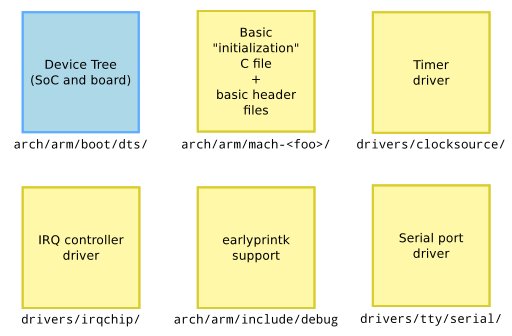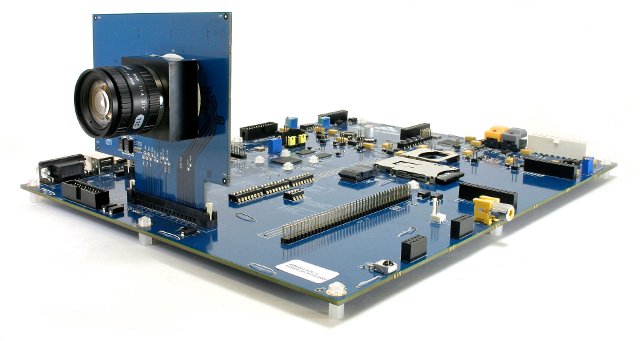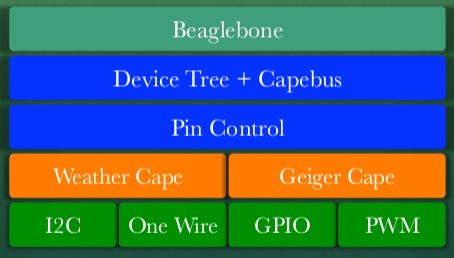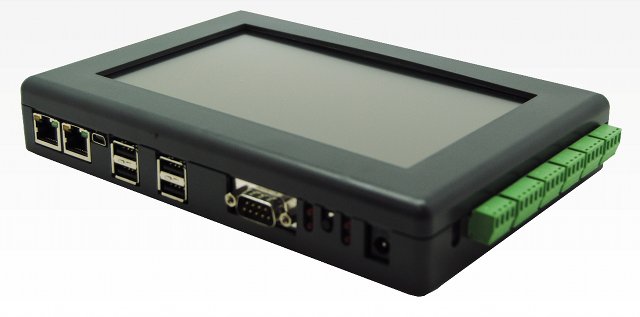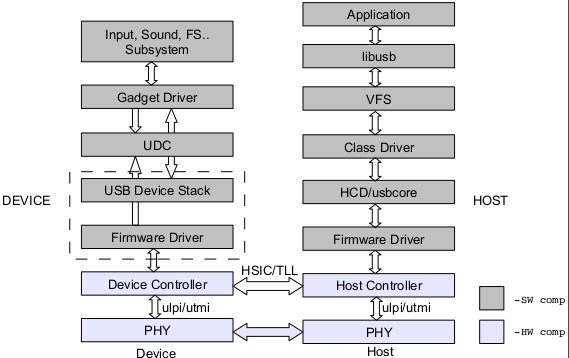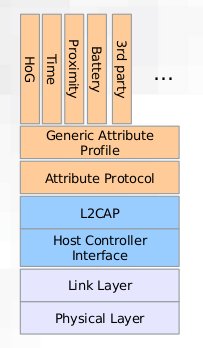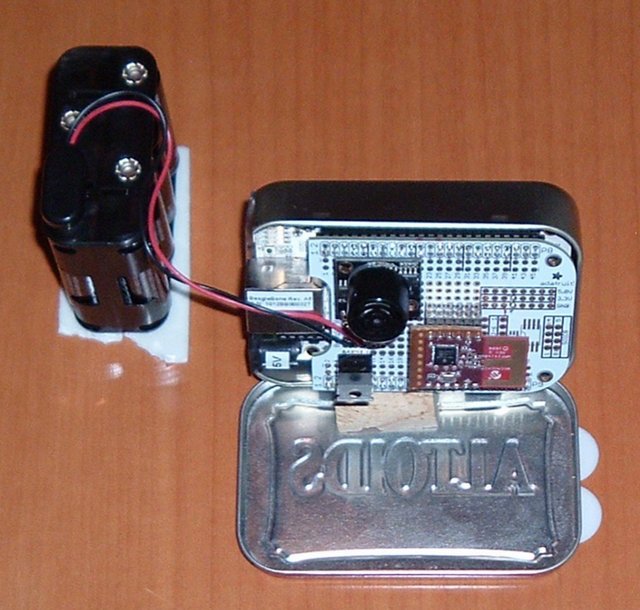Thomas Petazzoni, embedded Linux engineer and trainer at Free Electrons, describes the steps he followed to add a new Marvell SoC to the mainline kernel at ELCE 2012. Abstract: Since Linus Torvalds raised warnings about the state of the ARM architecture support in the Linux kernel, a huge amount of effort and reorganization has happened in the way Linux supports ARM SoCs. From the addition of the device tree to the pinctrl subsystem, from the new clock framework to the new rules in code organization and design, the changes have been significant over the last one and half year in the Arm Linux kernel world. Based on the speaker’s experience on getting the support for the new Marvell Armada 370 and Armada XP SoC support in the mainline Linux kernel, we will give an overview of those changes and summarize the new rules for ARM Linux support. We aim at […]
Ambarella Unveils A9 4K Ultra HD Camera SoC
Ambarella has recently today introduced the A9 camera System on Chip (SoC) with support for the new 4K Ultra HD video standard in order to power next generation of mirrorless, sports, and digital still cameras. Ambarella A9 SoC features two ARM Cortex A9 cores (surprisingly), as well as Ambarella Image and Video DSPs. The A9’s video features include video timelapse modes, capture of high-resolution still images during video recording, Electronic Image Stabilization (EIS), and burst capture of up to sixty 12-megapixel still images per second. Ultra-wide angle and small form factor lenses are supported with full lens distortion correction. The A9 also support High Dynamic Range (HDR) video. Ambarella A9 Feature Summary: 4K Ultra HD video recording @ 30 fps. High definition video recording at 720p @ 240fps and 1080p @ 120fps. Burst mode support for still image capture of over 700 Megapixels per second. Multi-exposure High Dynamic Range (HDR) […]
Beaglebone: The Perfect Telemetry Platform? – ELCE 2012
Matt Ranostay, technical staff at Ranostay Industries, gives a presentation about a telemetry system based on Beaglebone at the Embedded Linux Conference Europe on November 5, 2012. Abstract: The author will discuss his ongoing and other team members efforts to develop hardware and software that reports sensor data to the community. This talk will be split into several parts a) types of useful sensors b) hardware design of Beaglebone capes c) and telemetry reports to Pachube/Cosm. Demonstrating that in the new world of cheap prototyping boards with I2C, GPIO, and SPI that anyone can setup a decent monitoring system for home security, automation, and weather reporting. There will be a live demo of prototype geiger counter + weather station. The audience targeted is the professional hobbyist who likes to hack on microcontrollers in their spare time. It will take little to medium knowledge of electrical engineering to follow this talk. […]
Porting Android 4.0 to a Custom Industrial Board Based on TI OMAP 3 – ELCE 2012
Matthias Brugger, embedded engineer at ISEE, describes the steps the company had to follow (referred to as a “war story”) to port Android 4.0 to a custom industrial board at ELCE 2012, Barcelona, on November 5, 2012. Abstract: This talk will explain the lessons learned by giving a step-by-step introduction of porting Android to a custom board which was designed for an industrial environment. This includes an introduction to the Android build environment, first board bring-up and peripheral integration. The talk will cover bootloader integration, power management. It will focus on the peculiarities configuring Ethernet and Wi-Fi in Android. Also button and display integration, as well as integration of third-party accelerator support will be explained. Android devices are getting popular not only in the mobile market but although in the industrial environment. Porting Android to a custom board can be challenging, especially as little information about Android internals are available. […]
USB Debugging and Profiling Techniques – ELCE 2012
Kishon Vijay Abraham and Basak Partha, respectively software design engineer and tech lead at Texas Instruments, provide an overview of techniques that can be used to debug Linux USB drivers on the host PC or/and the device itself. Abstract: The widespread integration of USB into embedded applications presents many developers with the challenge of debugging problems, that are difficult to detect and isolate when a USB device misbehaves. This paper discusses about the various USB debugging techniques which includes debugging at the host PC, at the device and in the cable and discuss when each of the above techniques will be handy. This paper will also discuss about the various facilities provided within Linux kernel to aid in USB debugging e.g sysfs, trace points etc. and the various user space tools available to help USB debugging e.g USBMON. This paper also discusses about the profiling techniques at various levels in […]
Bluetooth Smart Devices and Low Energy support on Linux – ELCE 2012
Andre Guedes and João Paulo Rechi Vita, software engineers at Instituto Nokia de Tecnologia (INdT), give a presentation about Bluetooth Low Energy support on Linux (BlueZ stack) at the Embedded Linux Conference Europe in Barcelona on November 5, 2012. Abstract: This presentation will cover a brief introduction on how the Bluetooth Low Energy technology works. Then it will present the current status of its support on Linux, presenting the available APIs and how to interact with Bluetooth Smart devices. Then we’ll present the profiles we’re currently working on and what support can be expected to be found on Linux and BlueZ this year. There will be also a few demos of Bluetooth Smart devices working on Linux. The audience of this talk is application or framework developers that want to add support for Bluetooth Smart devices to their software, hardware vendors,and technology curious. Basic Bluetooth understanding is recommended but not […]
Device Tree and its Stumbling Blocks – ELCE 2012
Wolfram Sang, kernel developer for embedded systems at Pengutronix, talks about Device trees and conflicts and pitfalls he experienced as a kernel developer and I2C subsystem maintainer. This is one of several talks about Device trees at ELCE 2012. Abstract: Since ARM started to use device trees, their impact on various subsystems in the kernel has been increasing significantly. Because they became the de-facto standard, everybody wants them soon. Because they need a ton of conversions and adaptions, a lot of questions are still unresolved. This carries potential for conflicts.Wolfram has dealt with device trees already on PowerPC and still does on ARM. Additionally, he co-maintains the I2C subsystem which is affected by device tree conversions, too. Knowing both sides, as developer and as maintainer, he will talk about stumbling blocks experienced so far, e.g. typical pitfalls when inventing bindings or the high pace. A number of examples will be […]
Wireless Networking with IEEE 802.15.4 and 6LoWPAN – ELCE 2012
Alan Ott, founder of Signal 11 Software, gives a presentation dealing with wireless networking for the internet of things in Linux, especially with 802.15.4 and 6LoWPAN standards at the Embedded Linux Conference in Barcelona, Spain on November 5, 2012. Abstract: With the rise of the internet of things, low-power wireless devices will become increasingly prevalent. IEEE 802.15.4 is a wireless networking protocol designed for low-power and low-data-rate devices, such as those used in wireless sensor networks. While some higher layer protocols based on 802.15.4 are proprietary, an open standard called 6LoWPAN enables IPv6 traffic over 802.15.4. This presentation will give overviews of 802.15.4, its status in the Linux kernel, hardware support, comparison with other wireless protocols, and a demonstration of a simple 802.15.4/6loWPAN network. This presentation is targeted toward developers who wish to create low-power, low-data-rate wireless networks for sensors or other applications. Attendees can expect to gain a basic […]


